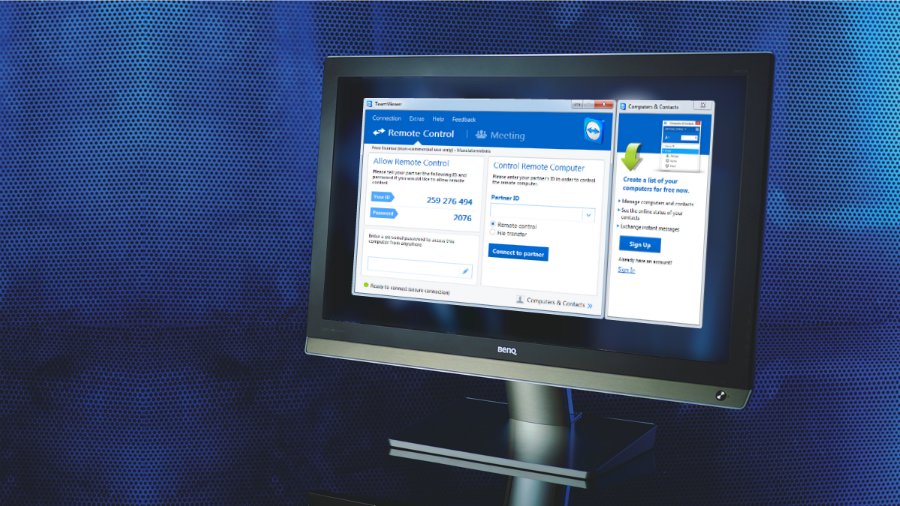TeamViewer outage sparks hacking claims which the company denies
Any compromises were apparently due to careless practices by users

Sign up for breaking news, reviews, opinion, top tech deals, and more.
You are now subscribed
Your newsletter sign-up was successful
TeamViewer went offline for a number of hours yesterday afternoon, an event which reportedly coincided with users seeing their PCs compromised – although the company denies any connection here, and insists it hasn't been hacked as many users have claimed.
Following yesterday's outage, a number of TeamViewer users went online to complain about having their machines breached. As The Register reports, some folks actually observed attackers taking control of the mouse cursor, and in some cases where able to take action to prevent damage.
However, others weren't so lucky and found that PayPal and other accounts had been accessed and financial havoc wreaked.
On Twitter, TeamViewer's tech support apologised for the outage and any inconvenience caused, but the company denied that any security breach had taken place.
In a statement from the firm's PR department, TeamViewer said that it wasn't hacked and that the application is fully safe to use.
Poor password practices
As for the cause of the compromises reported by users, TeamViewer said that was down to "careless use", and specifically the reuse of passwords across multiple online accounts (suggesting that attackers used a password gleaned elsewhere from another breach).
The TeamViewer statement read: "There is no evidence to suggest that TeamViewer has been hacked. Neither do we have any information that would suggest that there is a security hole in TeamViewer. Therefore it is important to stress there are no TeamViewer hackers, but rather data thieves that will steal information from other sources."
Sign up to the TechRadar Pro newsletter to get all the top news, opinion, features and guidance your business needs to succeed!
The Register has heard whispers that there may have been some sort of sophisticated DNS hijacking plan enacted by cybercriminals to hoover up TeamViewer login details, but the company clearly isn't accepting that anything like this occurred.
Darren is a freelancer writing news and features for TechRadar (and occasionally T3) across a broad range of computing topics including CPUs, GPUs, various other hardware, VPNs, antivirus and more. He has written about tech for the best part of three decades, and writes books in his spare time (his debut novel - 'I Know What You Did Last Supper' - was published by Hachette UK in 2013).